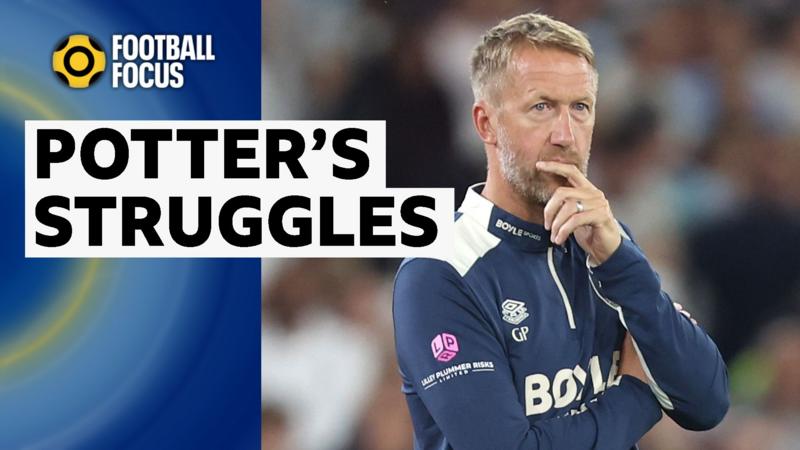Woeful Start: Unpacking Potter's Struggles with West Ham!



Graham Potter's journey as West Ham United’s new manager has been anything but smooth sailing. As the Hammers face a challenging start to the new Premier League season, with two losses from their opening matches and a troubling eight goals conceded, questions and concerns hover over the London Stadium like a dark cloud.
The team's disappointing performances have drawn intense scrutiny and analysis, particularly from pundits and former players like Chris Sutton, Glen Murray, and Alex Scott. The trio recently delved deep into the challenges Potter is encountering at his new club during a segment on Football Focus.
Chris Sutton, known for his straightforward assessments, pointed out that West Ham's defensive strategies appear disorganized and surprisingly porous, which is uncharacteristic of a team managed by Potter, who has been noted in the past for constructing solid defensive units. The lack of cohesion at the back has been a glaring issue, with the team looking vulnerable to counter-attacks and struggling to handle set pieces.
Glen Murray focused on player performances, suggesting that the confidence levels among the players are waning. He highlighted that in situations like this, it's essential for senior players to step up and rally the squad, which doesn't seem to be happening effectively at West Ham. Murray also questioned whether the recent signings have been adequately fulfilling their roles or if more time is needed for them to gel with the rest of the team.
Alex Scott, bringing her insights from a tactical angle, commented on the potential misalignment between Potter's strategic visions and the players' executions on the field. Scott noted that while it’s still early days, the lack of understanding between players over their roles and responsibilities is evident and could be contributing to their dismal defensive record.
Potter, who arrived with a respectable pedigree from his previous tenure at Brighton, where he was praised for his progressive football and strong management, finds himself in a tricky position. Adjusting to a new club always poses inherent challenges, and the pressure is mounting for him to turn the tide swiftly.
The switch to West Ham was seen as a significant step in Potter’s managerial career, aiming to elevate the squad to compete more robustly in domestic and European contexts. However, the expectation that Potter would instantly transform the team into top-four contenders seems to be weighing heavily both on him and the squad.
Despite the bumpy start, it’s crucial to remember that the Premier League is a marathon, not a sprint. Building a successful team dynamic and achieving consistency takes time, especially when adapting to a manager’s new systems and tactics. Potter is known for his analytical approach and attention to detail, which suggests that adjustments and improvements are likely as the season progresses.
For the fans, while it’s disheartening to see the team’s current form, patience could indeed turn out to be a virtue. Potter’s track record of enhancing team performances through meticulous planning and strategic acumen is well-documented. As the team adapts to his methodologies, there might be positive changes on the horizon.
Overall, it’s a critical juncture for Potter at West Ham. The blend of high expectations, the intense nature of the Premier League, and the urgent need for defensive solidity are all factors that Potter and his squad will have to tackle head-on. As they prepare for their upcoming fixtures, the football community will be eager to see how Potter steers his team out of these turbulent waters and whether he can instill the resilience and tactical savvy that he's respected for.